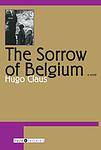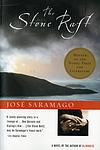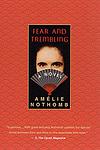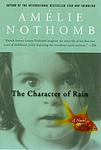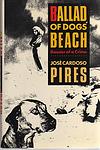The Greatest Portuguese, Belgian "Fiction" Books Since 1980
Click to learn how this list is calculated.
This list represents a comprehensive and trusted collection of the greatest books. Developed through a specialized algorithm, it brings together 300 'best of' book lists to form a definitive guide to the world's most acclaimed books. For those interested in how these books are chosen, additional details can be found on the rankings page.
Genres
Countries
Date Range
Reading Statistics
Click the button below to see how many of these books you've read!
Download
If you're interested in downloading this list as a CSV file for use in a spreadsheet application, you can easily do so by clicking the button below. Please note that to ensure a manageable file size and faster download, the CSV will include details for only the first 500 books.
Download-
1. The Book of Disquiet by Fernando Pessoa
"The Book of Disquiet" is a posthumously published collection of thoughts and musings of a solitary dreamer, who is a Lisbon-based bookkeeper. The book delves into the mind of a man who is discontented with his mundane life and finds solace in dreaming and writing. The narrative is a profound reflection on life, solitude, and the nature of humanity, filled with philosophical insights and poetic language. The protagonist's introspective journey and his struggles with existential despair make it a seminal work in the genre of literary modernism.
-
2. The Year of the Death of Ricardo Reis by José Saramago
The novel is a metaphysical narrative about a doctor named Ricardo Reis who returns to Lisbon, Portugal after learning about the death of his friend. He finds himself in a society on the brink of dictatorship, and as he navigates through his daily life, he encounters his deceased friend's ghost and a hotel maid with whom he begins a love affair. The book explores themes of identity, love, and the nature of reality, set against the backdrop of political turmoil.
-
3. Blindness by José Saramago
In this dystopian novel, an unexplained epidemic of "white blindness" sweeps through an unnamed city, causing chaos and panic. The government responds by quarantining the afflicted in an abandoned mental hospital, where conditions quickly deteriorate into violence and squalor. Amid the despair, one woman mysteriously retains her sight and guides a small band of the blind, including her husband, through the harrowing ordeal. The novel explores themes of loss, human nature, and the fragility of civilization.
-
4. Baltasar and Blimunda by José Saramago
"Baltasar and Blimunda" is a historical love story set in 18th century Portugal. The narrative follows a maimed soldier, Baltasar, and a young clairvoyant woman, Blimunda, as they navigate the hardships of life during the Inquisition. Their love story is intertwined with the construction of the Convent of Mafra, a grandiose project initiated by the King. The novel explores themes of love, faith, human resilience, and the struggle against political and religious oppression.
-
5. The Gospel According To Jesus Christ by José Saramago
This novel offers a provocative and humanized retelling of the life of Jesus Christ, diverging from traditional biblical narratives. It presents a Jesus who is all too human, grappling with the complexities of life, love, and a sense of destiny. Through a blend of biblical lore and imaginative fiction, the story explores themes of divinity, free will, and morality, challenging readers to reconsider the foundations of faith and the nature of storytelling itself. The narrative delves into Jesus's relationships, his encounters with figures such as God and the Devil, and ultimately portrays a deeply philosophical and introspective version of a figure central to Western civilization.
-
6. Fado Alexandrino by António Lobo Antunes
"Fado Alexandrino" is a complex narrative that follows the lives of four Portuguese men who meet at a dinner in Lisbon to commemorate their return from the colonial war in Mozambique ten years prior. Each man, representing different social classes, recounts his life before, during, and after the war, revealing their personal struggles and the impact of the war on their lives. The novel also reflects the political and social changes in Portugal from the dictatorship era to the revolution and its aftermath.
-
7. The Sorrow of Belgium by Hugo Claus
"The Sorrow of Belgium" is a coming-of-age story set against the backdrop of World War II. The narrative follows the life of a young boy in a Flemish town, as he navigates through the complexities of adolescence, family relationships, and the harsh realities of war. The novel provides an insightful exploration of Belgian history, culture, and the nation's struggle under the Nazi occupation, all through the eyes of the protagonist.
-
8. The History of the Siege of Lisbon by José Saramago
This narrative revolves around a proofreader named Raimundo Silva, who, while working on a historical text about the Siege of Lisbon, decides to alter history by adding a single word to the text, turning the factual account into a fictional one. This act of rebellion leads him into a relationship with his boss, Maria Sara, and together they explore the consequences of questioning historical facts and narratives. The story also delves into the power of language and storytelling, and the blurred lines between history and fiction.
-
9. The Return Of The Caravels by António Lobo Antunes
In this novel, the ghosts of Portugal's colonial past return to haunt the present, as the caravels from the age of exploration sail back into the Tagus River, bringing with them the historical figures from the 15th and 16th centuries. The narrative weaves together the lives of these returned explorers with those of contemporary Lisbon's denizens, blurring the lines between past and present. Through a series of interconnected stories, the book explores themes of identity, nostalgia, and the complex legacy of colonialism, as characters grapple with the dissolution of the Portuguese empire and the reintegration of its former colonies, reflecting on the impact of history on individual lives and national consciousness.
-
10. Treaty Of The Soul's Passions by António Lobo Antunes
"Treaty of the Soul's Passions" is a profound exploration of human emotions and the complexities of the inner self. Through a series of interconnected stories and reflections, the narrative delves into the depths of love, despair, joy, and suffering, painting a vivid picture of the human condition. The author masterfully weaves a tapestry of characters and experiences, each revealing different facets of the soul's journey through life. With poetic language and rich psychological insight, the book invites readers to confront their own passions and question the nature of existence itself.
-
11. Margot and the Angels by Kristien Hemmerechts
"Margot and the Angels" is a poignant story about a woman who, after losing her husband and children in a car accident, is left to navigate life on her own. As she grapples with her grief, she finds solace in the company of three angels who appear to her. The angels help her make sense of her tragedy, guiding her towards acceptance and healing. The book explores themes of loss, grief, resilience, and the power of faith, offering a compelling exploration of the human capacity to endure and find hope amidst despair.
-
12. Karingana Ua Karingana by José Craveirinha
"Karingana Ua Karingana" is a collection of poetry that delves into the rich cultural heritage and history of Mozambique. Through vivid and evocative imagery, the author explores themes of love, loss, and the struggles faced by the people of his country. Craveirinha's powerful and poignant verses offer a glimpse into the complexities of Mozambican society, while also celebrating its resilience and beauty.
-
13. The Stone Raft by José Saramago
In this surreal exploration, the Iberian Peninsula breaks off from the rest of Europe and begins to drift across the Atlantic Ocean. As the governments and international community scramble to understand and respond to the phenomenon, five disparate individuals find themselves drawn together on a journey across the newly isolated landscape. Through their experiences and interactions, the narrative explores themes of identity, nationality, and the arbitrary nature of borders.
-
14. Terra Sonâmbula by Mia Couto
"Terra Sonâmbula" by Mia Couto is a captivating novel set in war-torn Mozambique, where two individuals, a young boy and an old man, cross paths and embark on a journey that intertwines their lives. Through their encounters with other characters and their shared experiences, the book explores themes of loss, displacement, and the power of storytelling to heal and provide hope in the face of adversity. The lyrical prose and magical realism elements create a rich and evocative narrative that immerses readers in the complex and haunting world of post-colonial Mozambique.
-
15. Cain by José Saramago
The novel explores the biblical story of Cain and Abel from the perspective of Cain, after he murdered his brother. The author reimagines the Old Testament by having Cain time travel to key events and interact with biblical figures such as Noah and Abraham, challenging the traditional interpretations of morality, justice, and faith. Cain's journey reveals a critical view of God and the paradoxes of the human condition.
-
16. Hygiene And The Assassin by Amélie Nothomb
The book revolves around the final days of a Nobel Prize-winning author who, after being diagnosed with a terminal illness, agrees to a series of interviews having shunned public attention for decades. Known for his misanthropy and biting intellect, the author engages in verbal sparring with the journalists, each encounter more intense than the last. However, when a particularly astute and persistent female journalist enters the fray, the conversation takes an unexpected turn, leading to startling revelations about the author's past and the true nature of his controversial works. The narrative delves into themes of truth, deception, and the power dynamics inherent in the creation and interpretation of literature.
-
17. Fear And Trembling by Amélie Nothomb
The book is a psychological exploration of the clash between Western and Eastern business cultures, as seen through the eyes of a young Belgian woman working for a major Japanese corporation in Tokyo. The protagonist's initial fascination with the company's traditional Japanese corporate culture turns into a harrowing psychological ordeal as she confronts extreme work ethic, rigid hierarchies, and the challenge of maintaining her identity in the face of overwhelming conformity. Through her experiences, the novel delves into themes of alienation, the search for self, and the often surreal nature of cross-cultural encounters.
-
18. The Character Of Rain by Amélie Nothomb
The book is a semi-autobiographical novel that explores the early years of a young girl born in Japan to Belgian parents. It delves into the protagonist's experiences and perceptions from her infancy through her toddler years, presenting a philosophical and introspective look at the development of consciousness and identity. The narrative is characterized by its exploration of the Japanese concept of 'the third brother,' which symbolizes the child's pre-linguistic state of purity and potential, and the transition from this state to becoming a sentient individual with a unique character shaped by cultural and familial influences. The story is a blend of whimsy and depth, reflecting on the nature of being and the transformative journey of self-discovery from the earliest moments of life.
-
19. Ballad Of Dogs' Beach by José Cardoso Pires
The book is a gripping narrative that delves into the political and social turmoil of Portugal during the 1960s, as seen through the lens of a mysterious crime. When a body washes up on a beach near Lisbon, the ensuing investigation exposes the dark undercurrents of a society under a repressive regime. The story weaves together the perspectives of various characters, including those in power and ordinary citizens, to create a tapestry of intrigue and resistance. The novel's exploration of memory, identity, and the struggle for justice serves as a poignant commentary on the human condition amidst political oppression.
-
20. War And Turpentine by Stefan Hertmans
"War and Turpentine" by Stefan Hertmans is a historical novel that follows the life of the author's grandfather, Urbain Martien, who lived through both World War I and II. The book is divided into three parts: Urbain's childhood in poverty-stricken Belgium, his experiences as a soldier in WWI, and his life as a struggling artist after the war. The novel explores themes of love, loss, and the impact of war on individuals and society. Through Martien's story, Hertmans paints a vivid picture of a bygone era and the struggles faced by those who lived through it.
-
21. Always Astonished by Fernando Pessoa
"Always Astonished" is a collection of writings that offers a glimpse into the profound and often perplexing musings of its author, a renowned literary figure known for his philosophical insights and multiple writing personas. The book is a compilation of texts that span various genres, including poetry, prose, and philosophical reflections. It captures the author's unique ability to delve into the complexities of the human soul, existential angst, and the search for meaning in a seemingly indifferent universe. Through a series of contemplative and often contradictory voices, the work invites readers to confront the enigmatic nature of existence and the eternal quest for self-discovery and astonishment at the world.
-
22. Tokyo Fiancée by Amélie Nothomb
The book is a semi-autobiographical novel that delves into the complexities of cultural identity and love. It follows a young Belgian woman who, infatuated with Japanese culture, returns to Tokyo with the intention of immersing herself in the language and lifestyle. She begins a romantic relationship with a Japanese man, which becomes a conduit through which she explores the nuances of cross-cultural understanding and personal identity. As their relationship deepens, the couple navigates the challenges posed by their different backgrounds, leading to a poignant exploration of the intersection between desire, belonging, and the search for self amidst the backdrop of a bustling, enigmatic Tokyo.
-
23. Giants And Heroes by Dianne Tittle De Laet
"Giants and Heroes" is a captivating collection of mythological tales that explores the timeless themes of strength, courage, and adventure through the stories of giants and heroic figures from various cultures around the world. The book delves into the lives and exploits of these larger-than-life characters, examining their battles, quests, and the moral lessons they impart. Richly woven with folklore and tradition, this anthology not only entertains but also illuminates the cultural significance of these mythical beings and their impact on the human spirit.
Reading Statistics
Click the button below to see how many of these books you've read!
Download
If you're interested in downloading this list as a CSV file for use in a spreadsheet application, you can easily do so by clicking the button below. Please note that to ensure a manageable file size and faster download, the CSV will include details for only the first 500 books.
Download





